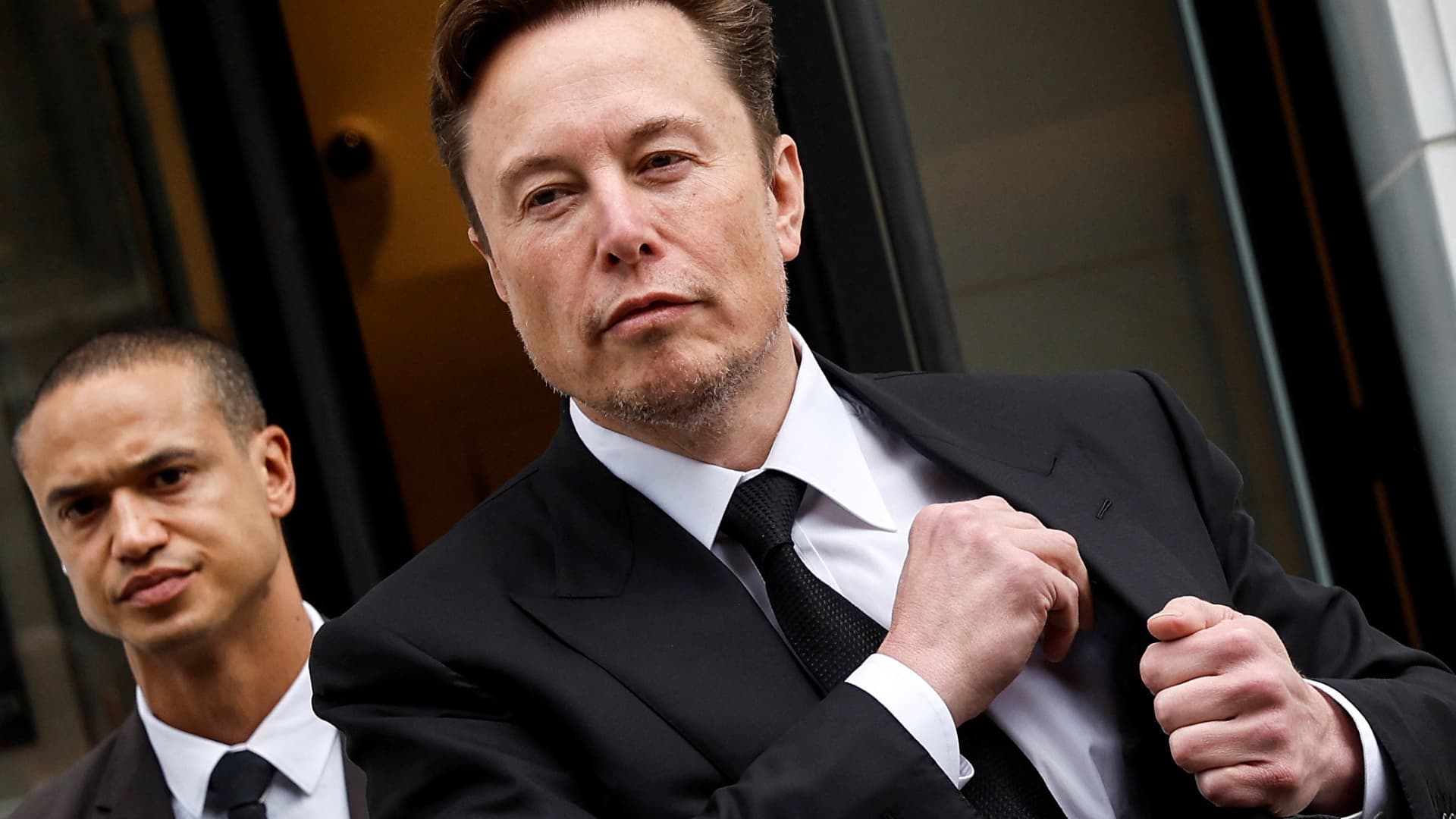Tesla CEO Elon Musk and his staff are meeting Wednesday with California Governor Gavin Newsom and touring Tesla’s new engineering headquarters. Sources close to the governor told CNBC the meeting at Tesla’s engineering office in Palo Alto, California is expected to focus on the company’s efforts to create jobs and expand in the state.
The expansion will focus on hiring engineers proficient in research development and artificial intelligence. Tesla is taking over the lease for the office space, previously occupied by Hewlett-Packard. The plans will help accelerate efforts to produce autonomous driving and robot technology.
“This was HP’s original headquarters, and so I think it’s a poetic transition from the founders of Silicon Valley to Tesla and we’re very excited to make this our global engineering headquarters,” Musk told CNBC. “And we’re a California-Texas company.”
Musk said the new facility is “effectively a headquarters of TEsla” and that it’s “kind of a dual-headquartered company.”
Tesla initiated the meeting after several previous attempts to set up talks between the state’s most well-known politician and the most outspoken billionaire failed to materialize.
It comes as Tesla faces regulatory scrutiny in the state. The California Department of Motor Vehicles has formally accused Tesla of engaging in deceptive marketing and advertising practices where its driver assistance programs, brand-named Autopilot and Full Self-Diving, are concerned. And the state’s civil rights agency has sued Tesla alleging racist harassment of, and discrimination against, Black workers that has persisted for years at the company’s car assembly plant and other facilities in California.
Meanwhile, according to Tesla’s most recent annual financial filing with the SEC, district attorneys in different California counties are “conducting an investigation into Tesla’s waste segregation practices,” for hazardous waste-related code violations.
Tesla did not immediately respond to a request for comment.
California and its strong climate initiatives have been integral to Tesla’s success. California leads the nation’s zero-emission vehicle market with nearly 1.4 million ZEVs sold and it’s home to 55 ZEV-related manufacturing companies.
But Musk’s views on California have not been so friendly when it comes to his business.
As the pandemic hit in March 2020, Musk and state officials clashed over reopening the Tesla plant in Fremont, California. At the time, Musk was pushing for his employees to return to work while covid was affecting businesses across the country. Musk mischaracterized California’s health-related covid restrictions as “fascist.”
Musk talked with CNBC about his current thoughts on the state.
“I think California should be cautious about taxes and over regulations going too far,” he said. “Objectively, Tesla has done nothing but increase its footprint in California. Both in terms of manufacturing and engineering and personnel. Every year we’ve grown our headcount in California without exception.”
In 2021, following repeated threats to leave the state, Musk moved Tesla’s headquarters to Austin, Texas. The company owns and operates two Megafactories in Fremont and Lathrop, Texas.
Since then, Musk has made his political stance clear, characterizing California as a one-party state that is burdened with overregulation and high taxes. Despite those comments, Governor Newsom has praised Musk in multiple interviews with CNBC, calling him “one of the greatest innovators of our time.”
Musk, meanwhile, has emphasized that Tesla is still a major employer in the state and is expanding its operations. In the fourth quarter of 2022, for example, Tesla boasted about a new Megapack factory in Lathrop, California.
“I’m not anti-California,” he told CNBC. “One has to strike a balance and say there’s a lot of good things about California and there are some challenges. California could make it easier to do manufacturing but we encourage legislators to consider their actions long-term.”
Tesla said it had 47,000 employees in California in 2022, according to a January 2023 blog post. As of Dec. 31, 2022, the company and its subsidiaries had 127,855 employees worldwide. The company said its wages resulted in $16.6 billion in economic activity for the state “or $44.4 million injected into California’s economy each day.”
CNBC’s Lora Kolodny contributed to this report.






